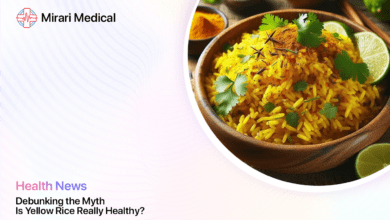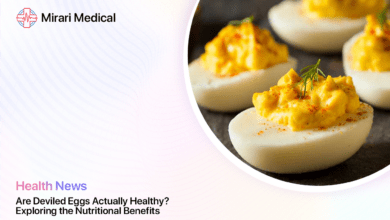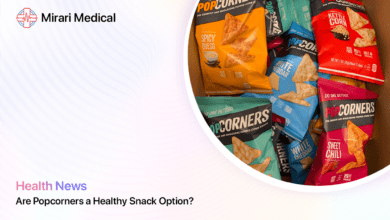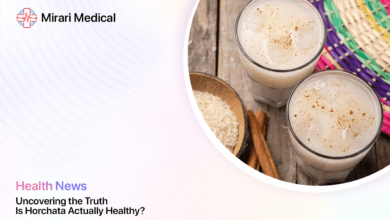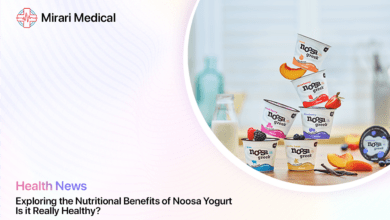Are Naked Drinks Really Healthy? Debunking Common Myths and Facts
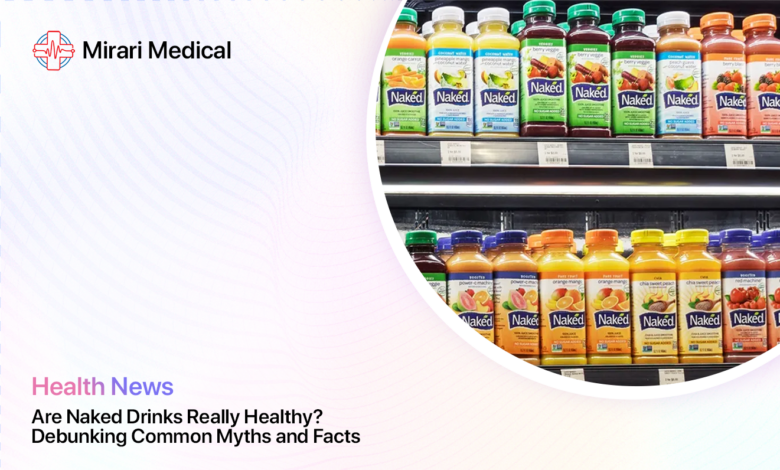
You may be interested
You’ve probably seen Naked Juice drinks in the refrigerated section of your grocery store or convenience store. With their colorful bottles and promises of boosting your immune system, it’s no wonder these juice drinks have gained popularity recently. But are Naked Juices really as healthy as they claim to be?
A whopping 53 grams of sugar are packed into each 15.2 ounce bottle of Naked Juice Green Machine.[1] That’s more sugar than a 12-ounce can of Coca-Cola! So before you grab a bottle of Naked Juice, let’s take a closer look at what’s really inside and whether these drinks live up to their health halo.
What are Naked Drinks?
Naked Juice is a brand of fruit and vegetable juices and smoothies. The company was founded in 1983 in Santa Monica, California. In 2007, beverage giant PepsiCo acquired Naked Juice for $450 million.[2]
The brand’s name comes from the fact that their drinks have no added sugars, preservatives, or artificial flavors. Naked Juice claims their drinks provide “the best ingredients Mother Nature has to offer” and that they are “the next best thing to eating the fruit itself.”[3]
What are the Different Types of Naked Drinks?
Naked Juice offers a variety of fruit and vegetable juice blends, as well as protein smoothies and coconut water. Some of their most popular products include:
- Green Machine: A blend of apple, mango, pineapple, banana, kiwi, spirulina, chlorella, broccoli, spinach, barley grass, wheat grass, parsley, kale, and ginger root
- Blue Machine: A blend of apple, banana, blueberry, and blackberry juices
- Red Machine: A blend of apple, banana, strawberry, raspberry, cranberry, pomegranate, acai, and goji juices
- Mighty Mango: A blend of apple, mango, and orange juices
- Power-C Machine: A blend of orange, apple, mango, guava, and acerola cherry juices
What are the Ingredients in Naked Drinks?
At first glance, the ingredient lists for Naked Juices look pretty healthy. Most of their drinks are made with a blend of fruit and vegetable juices, purees, and concentrates.
For example, here are the ingredients in Naked Juice Green Machine:
Apple juice, mango puree, pineapple juice, banana puree, kiwi puree, spirulina, chlorella, broccoli, spinach, barley grass, wheat grass, parsley, kale, ginger root, natural flavors, alfalfa, broccoli, garlic, wheat sprouts, Jerusalem artichoke, Nova Scotia dulse, Siberian ginseng, echinacea, dandelion, lemon, cayenne pepper, astragalus, shiitake mushroom, cordyceps mushroom, reishi mushroom, maitake mushroom, schisandra, stevia leaf extract.
Are the Ingredients All Natural?
While Naked Juice claims to use only natural ingredients, they have faced lawsuits over this in the past. In 2013, Naked Juice settled a class action lawsuit for $9 million after plaintiffs alleged that some of their ingredients, like calcium pantothenate (synthetically produced from formaldehyde), Fibersol-2 (a soluble corn fiber), and genetically modified soy, were not “all natural” as the label claimed.[4]
As part of the settlement, Naked Juice agreed to stop using the phrase “all natural” on their packaging. However, they still maintain that their juices and smoothies are made without added sugars, preservatives, or artificial flavors.
Are There Any Artificial Sweeteners in Naked Drinks?
No, Naked Juices do not contain any artificial sweeteners. The sweetness comes from the natural sugars found in the fruits and vegetables used to make the drinks. However, some of their products do contain small amounts of stevia leaf extract, which is a natural zero-calorie sweetener.
What are the Health Claims of Naked Drinks?
Naked Juice makes several health claims about their products, such as:
- No added sugars
- Non-GMO
- Excellent source of vitamins
- Boosts energy
- Supports immunity
- Promotes heart health
- Aids weight loss
Let’s take a closer look at some of these claims.
Do Naked Drinks Really Boost Immunity?
Some Naked Juice products, like their Power-C Machine and Green Machine, claim to boost your immune system with ingredients like vitamin C, echinacea, and superfood greens.
However, while consuming fruits and vegetables high in vitamin C and other antioxidants can support immune function, there is limited scientific evidence that drinking juices like Naked Juice can prevent illness or “boost” immunity.[5]
Additionally, the high sugar content in these juices may actually have a negative impact on immune function. Studies have shown that consuming large amounts of added sugars can reduce the ability of white blood cells to kill germs.[6]
Can Naked Drinks Help with Weight Loss?
Naked Juice does offer lower calorie “Light” versions of some of their drinks, which they claim can be helpful for those trying to manage their weight.
However, even their light juices are still relatively high in sugar and calories compared to whole fruits and vegetables. An 8-ounce serving of Naked Juice Tropical Mango Light contains 13 grams of sugar and 60 calories, while an 8-ounce serving of orange juice contains about 21 grams of sugar and 112 calories.[7]
Drinking fruit juices, even 100% juices with no added sugars, has actually been linked to weight gain in several studies. A review published in the Journal of the Academy of Nutrition and Dietetics found that juice consumption was associated with increased body weight in children and adults.[8]
This is likely because liquid calories from juice are less filling than calories from solid whole fruits, and because it’s easier to consume excess calories by drinking juice compared to eating whole fruits.
Are Naked Drinks a Good Source of Vitamins and Minerals?
Naked Juice does provide some essential vitamins and minerals, like vitamin C, vitamin A, potassium, and folate. An 8-ounce serving of their Green Machine juice provides 120% of the daily value for vitamin C, 80% for vitamin A, 14% for potassium, and 60% for folate.[9]
However, many of these nutrients are added to the juices through fortification and are not naturally occurring. Additionally, by juicing fruits and vegetables, you lose the beneficial fiber that helps slow down the absorption of sugar in the body.
Fiber also helps keep you feeling full and satisfied after eating. So while Naked Juices can contribute to your daily fruit and vegetable intake, eating whole produce is a better choice overall.
What are the Myths Surrounding Naked Drinks?
There are several common misconceptions about the healthfulness of Naked Juice drinks. Let’s debunk a couple of the biggest myths.
Myth 1: Naked Drinks are 100% Fruit Juice
While Naked Juice is transparent about the fact that their drinks contain fruit and vegetable juices and purees, many people assume they are getting 100% juice.
However, if you look at the ingredients lists, you’ll see that most of their drinks also contain natural flavors and other additives like citric acid and ascorbic acid (vitamin C).
For example, here are the ingredients in Naked Juice Green Machine:
Apple juice, mango puree, pineapple juice, banana puree, kiwi puree, spirulina, chlorella, broccoli, spinach, barley grass, wheat grass, parsley, kale, ginger root, natural flavors, alfalfa, broccoli, garlic, wheat sprouts, Jerusalem artichoke, Nova Scotia dulse, Siberian ginseng, echinacea, dandelion, lemon, cayenne pepper, astragalus, shiitake mushroom, cordyceps mushroom, reishi mushroom, maitake mushroom, schisandra, stevia leaf extract.
As you can see, natural flavors is listed as an ingredient, which means these drinks are not 100% pure juice. The FDA defines natural flavors as substances derived from plant or animal sources, like fruit, meat, fish, spices, herbs, roots, etc.[10] These flavors are often used to enhance taste and aroma.
So while the main ingredients in Naked Juices are fruit and vegetable juices and purees, they also contain other additives for flavor and nutrition.
Myth 2: Naked Drinks are a Healthy Meal Replacement
With their high calorie and sugar content, Naked Juices are sometimes viewed as a healthy meal replacement or post-workout recovery drink. However, these drinks do not provide the balance of protein, healthy fats, and fiber that make up a nutritious meal.
An 8-ounce serving of Naked Juice Green Machine contains 140 calories, 32 grams of carbohydrates (28 grams of sugar), 2 grams of fiber, and 2 grams of protein.[11] By comparison, a balanced meal should provide a mix of complex carbohydrates, lean protein, healthy fats, and fiber.
The American Heart Association recommends that adult women consume around 25 grams of fiber per day, and adult men consume 38 grams per day.[12] Getting enough fiber is important for maintaining a healthy digestive system, controlling blood sugar, and promoting feelings of fullness.
But because most of the fiber is removed during the juicing process, Naked Juices are very low in this important nutrient. Swapping a fiber-rich whole fruit like an apple (4.4 grams of fiber) for 8 ounces of Naked Juice Green Machine (2 grams of fiber) means missing out on beneficial fiber.[13]
Additionally, the high sugar content of these drinks can lead to blood sugar spikes and crashes, especially when consumed on an empty stomach. For stable energy and optimal nutrition, it’s best to choose whole food meals and snacks that provide a balance of all three macronutrients.
What are the Facts about Naked Drinks?
Now that we’ve cleared up some of the misconceptions about Naked Juice, let’s review the facts about these popular beverages.
Fact 1: Naked Drinks Contain High Amounts of Sugar
One of the biggest problems with Naked Juices is their high sugar content. Even though the drinks have no added sugars, they still pack in a lot of natural sugars from fruit juices and purees.
Here’s how much sugar is in some popular 15.2-ounce bottles of Naked Juice:[14]
| Flavor | Sugar Content |
|---|---|
| Green Machine | 53 grams |
| Mighty Mango | 57 grams |
| Blue Machine | 55 grams |
| Red Machine | 49 grams |
To put that in perspective, the American Heart Association recommends that adult women consume no more than 25 grams (6 teaspoons) of added sugars per day, and adult men consume no more than 36 grams (9 teaspoons) per day.[15]
So a single bottle of Naked Juice can easily put you over the recommended daily limit for added sugars, even though the sugars are coming from natural sources.
Consuming high amounts of sugar, whether it’s from added sugars or natural sugars in juices, can contribute to health problems like:
The World Health Organization recommends limiting free sugars (which include added sugars as well as natural sugars in honey, syrups, and fruit juices) to less than 10% of total daily calories.[20] For a 2000 calorie diet, that equates to about 50 grams of free sugars per day.
Fact 2: Naked Drinks are Not a Balanced Meal Replacement
As discussed earlier, Naked Juices are very high in sugar and low in fiber and protein. An 8-ounce serving of Naked Juice Green Machine contains:[21]
- 140 calories
- 32 grams carbohydrate
- 28 grams sugar
- 2 grams fiber
- 2 grams protein
While the drink does provide some vitamins and minerals, it’s lacking in the fiber, protein, and healthy fats needed to make a balanced meal. Relying on Naked Juices as meal replacements can leave you feeling unsatisfied and may lead to overeating later in the day.
Protein, fat, and fiber all help slow down digestion and promote feelings of fullness and satisfaction after eating. They also help stabilize blood sugar levels. Naked Juices are mostly quick-digesting carbohydrates which can cause blood sugar spikes and crashes.
For a more balanced drink, try blending whole fruits and vegetables with sources of protein and healthy fats, like:
- Greek yogurt
- Nut butters
- Chia seeds
- Avocado
- Silken tofu
This will create a more filling, nutritious beverage that can actually substitute for a meal in a pinch. You can also add protein powder or collagen peptides for an extra boost.
Are Naked Drinks Really Healthy?
After looking at the nutrition facts and ingredients in Naked Juice drinks, it’s clear that they’re not as healthy as they may seem. While they can contribute to your daily fruit and vegetable intake, they are very high in sugar and low in fiber compared to eating whole produce.
The high sugar content in Naked Juices may contribute to weight gain, diabetes, heart disease, and other chronic health issues if consumed in excess. And the low fiber content means they are less filling and satisfying than eating whole fruits and vegetables.
Naked Juices can be an okay choice for a once-in-a-while treat or if you’re struggling to get enough produce in your diet. But for optimal health, it’s best to eat whole fruits and vegetables most of the time. If you do opt for a Naked Juice, stick to a small 8-ounce serving and pair it with a source of protein and healthy fat for better blood sugar control and satiety.
What are the Alternatives to Naked Drinks?
If you’re looking for a more nutritious way to get your fruits and veggies in, here are some alternatives to Naked Juice:
- Whole fruits and vegetables: Eating whole produce is always going to be the best choice for getting the most nutrition and fiber. Aim to fill half your plate with fruits and veggies at each meal.
- Homemade smoothies: Blending your own smoothies at home using whole fruits, vegetables, and sources of protein and healthy fats (like Greek yogurt, nut butter, avocado, etc.) is a great way to make a balanced, filling drink. You can control the ingredients and sugar content.
- Freshly squeezed juice: If you have a juicer at home, making your own fresh juices can be a nutritious treat. Stick to mostly vegetables and use fruit sparingly to keep the sugar content down. Have the juice with a meal or snack that contains protein and fat to help balance out the sugar.
- Low-sugar vegetable juices: Look for bottled green juices that are made mostly with vegetables and contain little or no fruit juice. These can be a good option when you’re on the go.
- Coconut water: For a naturally hydrating drink, try coconut water. It’s lower in sugar than most fruit juices but still contains electrolytes like potassium. Just be sure to choose unsweetened varieties.
- Herbal teas: Unsweetened herbal teas are a great way to stay hydrated and get some added benefits from herbs like chamomile, peppermint, and ginger. You can enjoy them hot or iced.
- Flavored water: Jazz up your water by adding sliced fruit, vegetables, and herbs like lemon, lime, cucumber, mint, or basil. This can make staying hydrated more enjoyable without adding sugar.
FAQs
What’s the healthiest juice to drink?
The healthiest juices are those that are mostly vegetable-based with little or no added fruit juice. Good options include green juices made with leafy greens, cucumber, celery, and lemon. Beet juice is another nutritious choice as it’s high in nitrates which may help lower blood pressure.[22]
What is the unhealthiest juice?
Juices that are high in sugar and low in fiber are the least healthy choices. These include most fruit juices, like apple, orange, and grape juice, as well as juice “cocktails” or juice drinks that contain added sugars. Drinking large amounts of these juices can contribute to weight gain and other chronic health issues.
What is the number 1 healthiest drink?
Water is hands down the healthiest drink. It’s essential for hydration and contains no calories, sugar, or additives. Unsweetened tea and coffee are also good choices for their antioxidant content. If you’re looking for something with more flavor, try infusing your water with fruit, vegetables, and herbs.
What’s the most unhealthiest drink?
Sugary drinks like soda, energy drinks, and sweetened teas and coffees are some of the unhealthiest beverages you can choose. They are very high in added sugars and calories but low in nutrients. Regular consumption of these drinks has been linked to weight gain, type 2 diabetes, heart disease, and other chronic conditions.[23]
What is the healthiest drink on Earth?
Again, water is the healthiest drink on the planet. It’s necessary for all bodily functions and has no negative health effects when consumed in appropriate amounts. Unsweetened tea and coffee are also healthy choices, as well as homemade smoothies and juices made mostly with vegetables.
What drink burns the most fat?
No single drink can magically burn fat, despite what some products may claim. Losing weight requires creating a calorie deficit through a combination of diet and exercise. However, some drinks may support weight loss efforts by boosting metabolism or reducing appetite. These include:
- Green tea: Contains caffeine and catechins which may increase fat burning[24]
- Coffee: Caffeine has been shown to boost metabolism and fat burning[25]
- Apple cider vinegar: May help reduce appetite and slightly increase metabolism[26]
- Ginger tea: May help reduce hunger and increase feelings of fullness[27]
Takeaways
- Naked Juices are not as healthy as they seem due to their high sugar content and low fiber content.
- Drinking Naked Juices regularly may contribute to weight gain, diabetes, and other chronic health issues.
- Whole fruits and vegetables, homemade smoothies, and fresh vegetable juices are more nutritious alternatives to Naked Juice.
- Water, unsweetened tea and coffee, and infused water are the healthiest drink choices overall.
- No single drink can cause fat loss, but some beverages may support weight loss efforts as part of a balanced diet and active lifestyle.
In summary, while Naked Juices contain some beneficial nutrients, their high sugar content and low fiber content make them a less healthy choice compared to whole fruits and vegetables. Drinking these juices regularly may contribute to weight gain and chronic disease risk. For optimal health, it’s best to eat mostly whole produce and limit intake of sugary juices and drinks. Choosing water, unsweetened teas and coffee, and homemade smoothies and juices made with vegetables are better options for staying hydrated and getting important nutrients.
References
- https://www.nakedjuice.com/our-products/machine/green-machine
- https://www.nytimes.com/2007/11/21/business/21juice.html
- https://www.nakedjuice.com/our-purpose
- https://www.classaction.org/media/naked-juice-class-action-settlement.pdf
- https://www.health.harvard.edu/staying-healthy/can-vitamin-c-prevent-a-cold
- https://www.ncbi.nlm.nih.gov/pmc/articles/PMC3448089/
- https://fdc.nal.usda.gov/fdc-app.html#/food-details/169097/nutrients
- https://pubmed.ncbi.nlm.nih.gov/24079207/
- https://www.nakedjuice.com/our-products/machine/green-machine
- https://www.accessdata.fda.gov/scripts/cdrh/cfdocs/cfcfr/cfrsearch.cfm?fr=101.22
- https://www.nakedjuice.com/our-products/machine/green-machine
- https://www.heart.org/en/healthy-living/healthy-eating/eat-smart/nutrition-basics/whole-grains-refined-grains-and-dietary-fiber
- https://fdc.nal.usda.gov/fdc-app.html#/food-details/1102644/nutrients
- https://www.nakedjuice.com/our-products
- https://www.heart.org/en/healthy-living/healthy-eating/eat-smart/sugar/added-sugars
- https://pubmed.ncbi.nlm.nih.gov/23280226/
- https://pubmed.ncbi.nlm.nih.gov/20693348/
- https://pubmed.ncbi.nlm.nih.gov/24493081/
- https://pubmed.ncbi.nlm.nih.gov/23280226/
- https://www.who.int/elena/titles/guidance_summaries/sugars_intake/en/
- https://www.nakedjuice.com/our-products/machine/green-machine
- https://pubmed.ncbi.nlm.nih.gov/24839137/
- https://pubmed.ncbi.nlm.nih.gov/20138901/
- https://pubmed.ncbi.nlm.nih.gov/18326618/
- https://pubmed.ncbi.nlm.nih.gov/7369170/
- https://pubmed.ncbi.nlm.nih.gov/19661687/
- https://pubmed.ncbi.nlm.nih.gov/22538118/
Your trusted source for health info, offering expert advice, news, and tips to stay healthy and informed.

